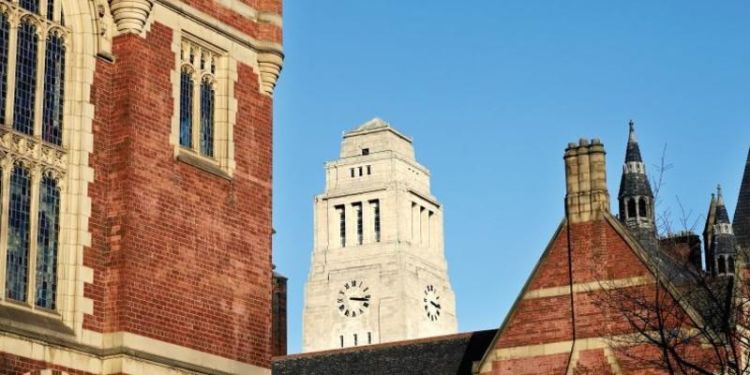White Rose seminar talk discusses Antipopes and legal practices in the 12th Century

Dr Danica Summerlin (University of Sheffield) presented a paper exploring the legal practices and jurisdictions of twelfth-century Antipopes at the University of York.
On 25th April, Dr Danica Summerlin from the University of Sheffield presented a paper entitled ‘Antipopes and the Law: Jurisdiction and Legal Practice during the Schisms of the Twelfth Century’ in the King’s Manor at the University of York. This was the second in a new series of talks between the White Rose medieval studies institutions of Leeds, York, and Sheffield, in which Dr Alaric Hall previously gave a paper at the University of Sheffield on medieval riddles.
Dr Summerlin’s paper, as mentioned, focused on the legal factors regarding situations in which two popes are elected at the same time, which occurred twice during the twelfth century. Firstly, in 1130-38 when, after the death of Honorus II, the college of cardinals was divided into different factions each proclaiming either Innocent II or Anacletus II as pope. And secondly in 1159, known as the Alexandria schism as Pope Alexander III was proclaimed with a majority in the college of cardinals. However, a minority of cardinals backed the proclamation of Victor IV, who also had the support of the Holy Roman Emperor Frederick Barbarossa. This support extended to 3 other antipopes, including Paschel III and Calixctus III. Dr Summerlin focuses on the Alexandria schism in particular, and specifically focuses on the legal practices of these so-called antipopes during the schism. She points out that, as antipopes, these pontiffs lost in the conflicts with Alexander III and highlights the use of the Lateran Councils of the twelfth century. The Third Lateran Council of 1179 created legal precedencies to nullify and void any ordinances from the antipopes, including ones made by them or on their behalf.
Despite this attempt by the victorious popes to smooth things over after the schisms, Dr Summerlin makes it clear that the reality demonstrates a much more complicated and messier situation than Pope Alexander III wanted to portray. The fact that the Holy Roman Emperor supported the promotion of all the antipopes against Alexander provides a political and geographical dimension to the schism. Dr Summerlin explains this when discussing a legal case between two abbots in what is now modern-day Belgium. This area was a political borderland in the twelfth century, which then also became religious during the schism, partially falling in the archbishopric of Cologne, who supported Frederick Barbarossa. This case took place between 1161 and 1162, with letters being sent to Victor IV to help solve the dispute. The fact we have these letters is extraordinary due to the lack of written records on the legal practices of antipopes in this period. But more importantly, according to Dr Summerlin, it demonstrates that the legal processes associated with papal law were being requested and carried out by the antipope Victor IV in a manner fitting his position as pontiff. There are other points of evidence that demonstrate antipopes like Victor IV exercising their papal authority in legal disputes, including in 1160 when he confirms the possessions of the bishop of Basel. Papal ordinances for the protection of possessions and privileges are some of the most common documents of papal legal practise and the fact that antipopes were asked to perform them suggests an understanding among those that made the requests of an antipope’s authority as a pope.
Dr Summerlin concluded that antipopes benefited from and engaged with the same type of legal and administrative power as expected from a ‘true’ pope. They exercised their papal authority to confirm privileges and protections and to settle disputes, and their cardinals and judge-delegates made decisions on their behalf. This suggests that the antipopes of the Alexandria schism had a functioning legal system in existence, or as much as it could be, in opposition to that of Alexander III. The need for the Third Lateran Council’s degrees to nullify any such legal confirmations from antipopes after the schism suggests, in itself, the effectiveness of these governments-in-exile.
The paper was followed by a question-and-answer session, where someone in attendance asked where the antipopes were situated and whether they had a fixed location in which they carried out their duties as pontiff, as would have be expected for those popes who resided in Rome. Dr Summerlin answered that the antipopes and their legal and administrative organisations tended to move around, not staying in one place. However, she also admitted that we know far less about the papal administrations associated with the twelfth-century schisms than the latter ones; i.e. between Rome and Avignon. Another question asked whether the accession of a new pope would usually coincide with an increase in requests for confirmations of privileges, which Dr Summerlin said was indeed the case.
To find out more about future White Rose talks or other events organised by the department, go onto the What’s on at Leeds page.




